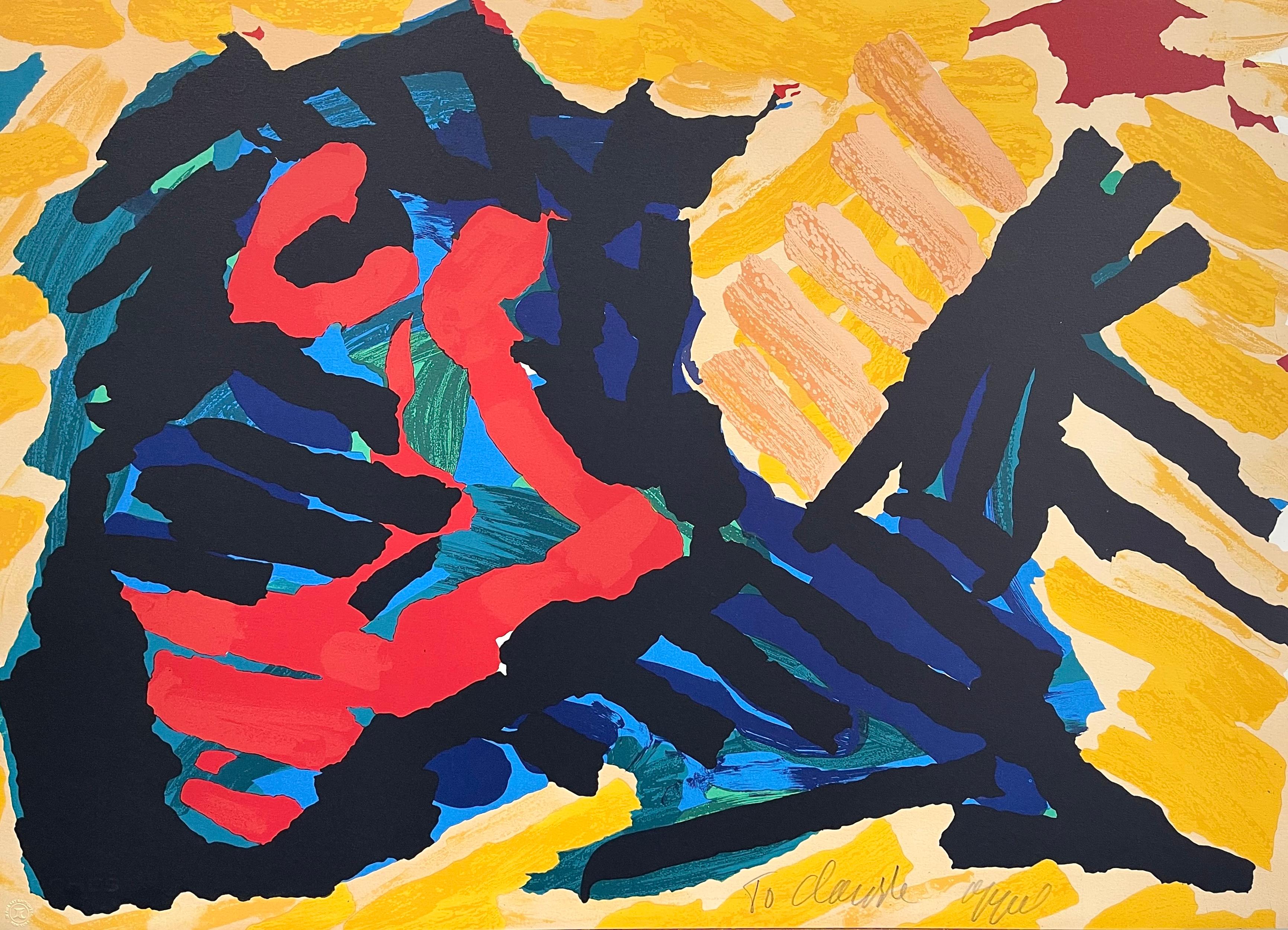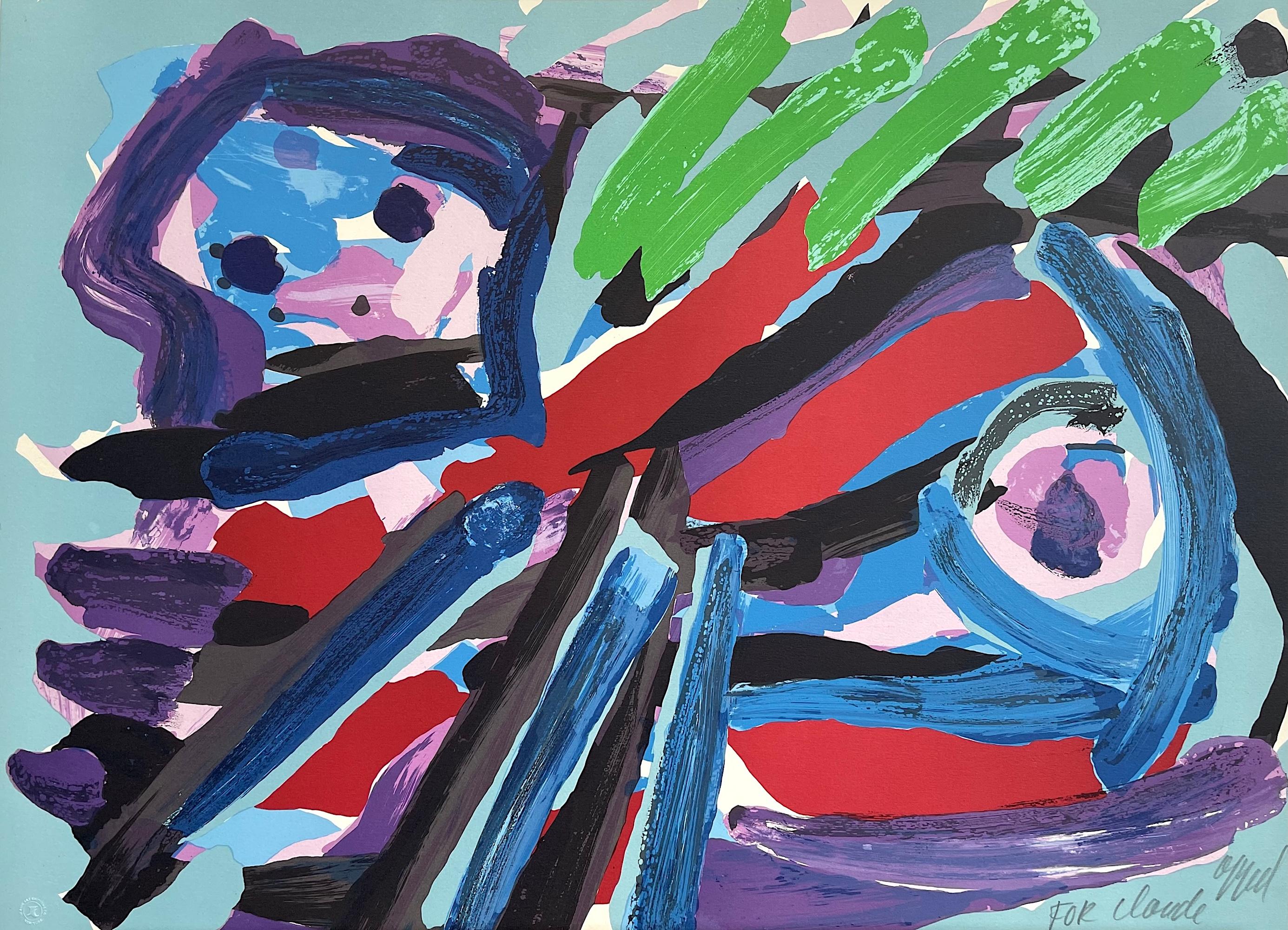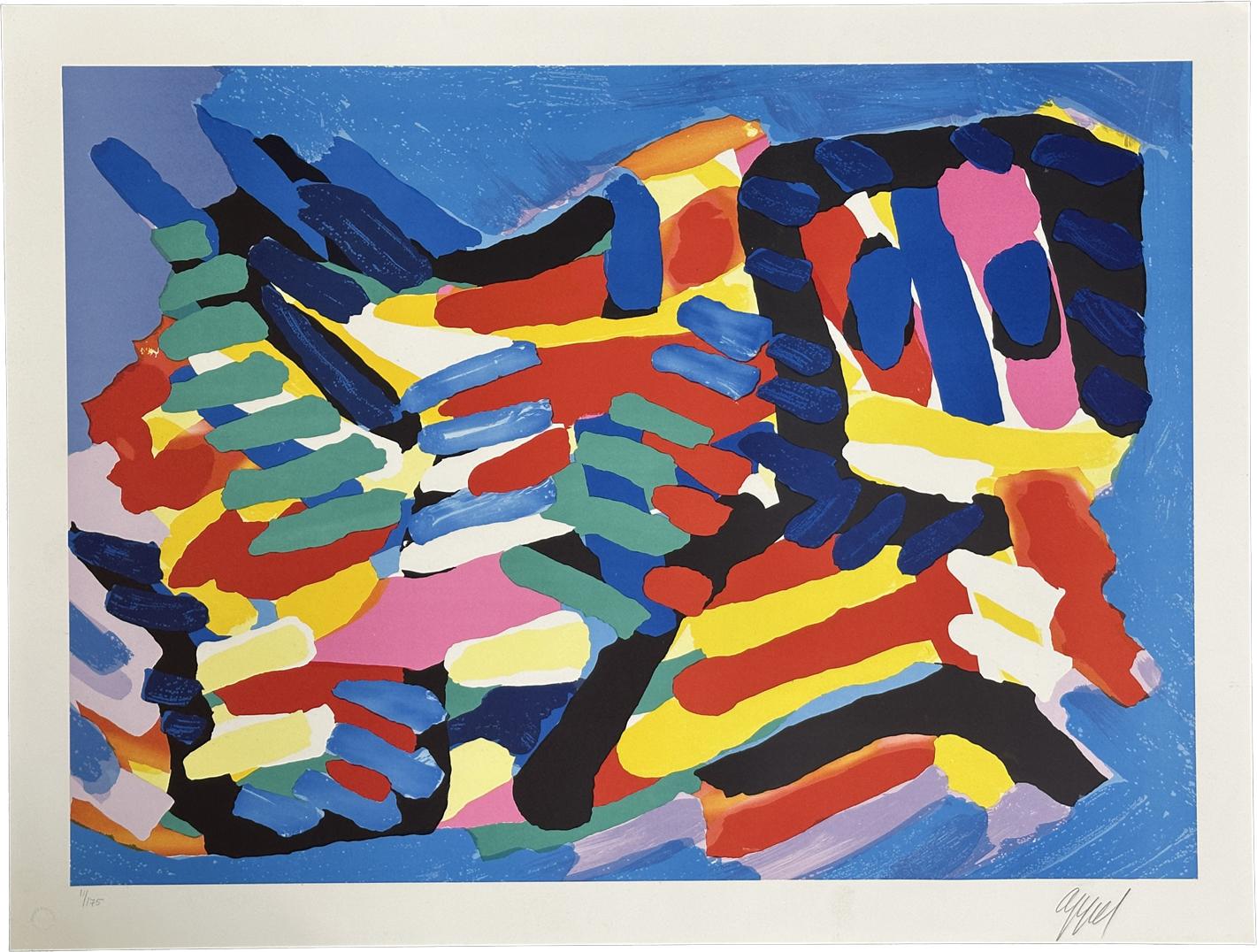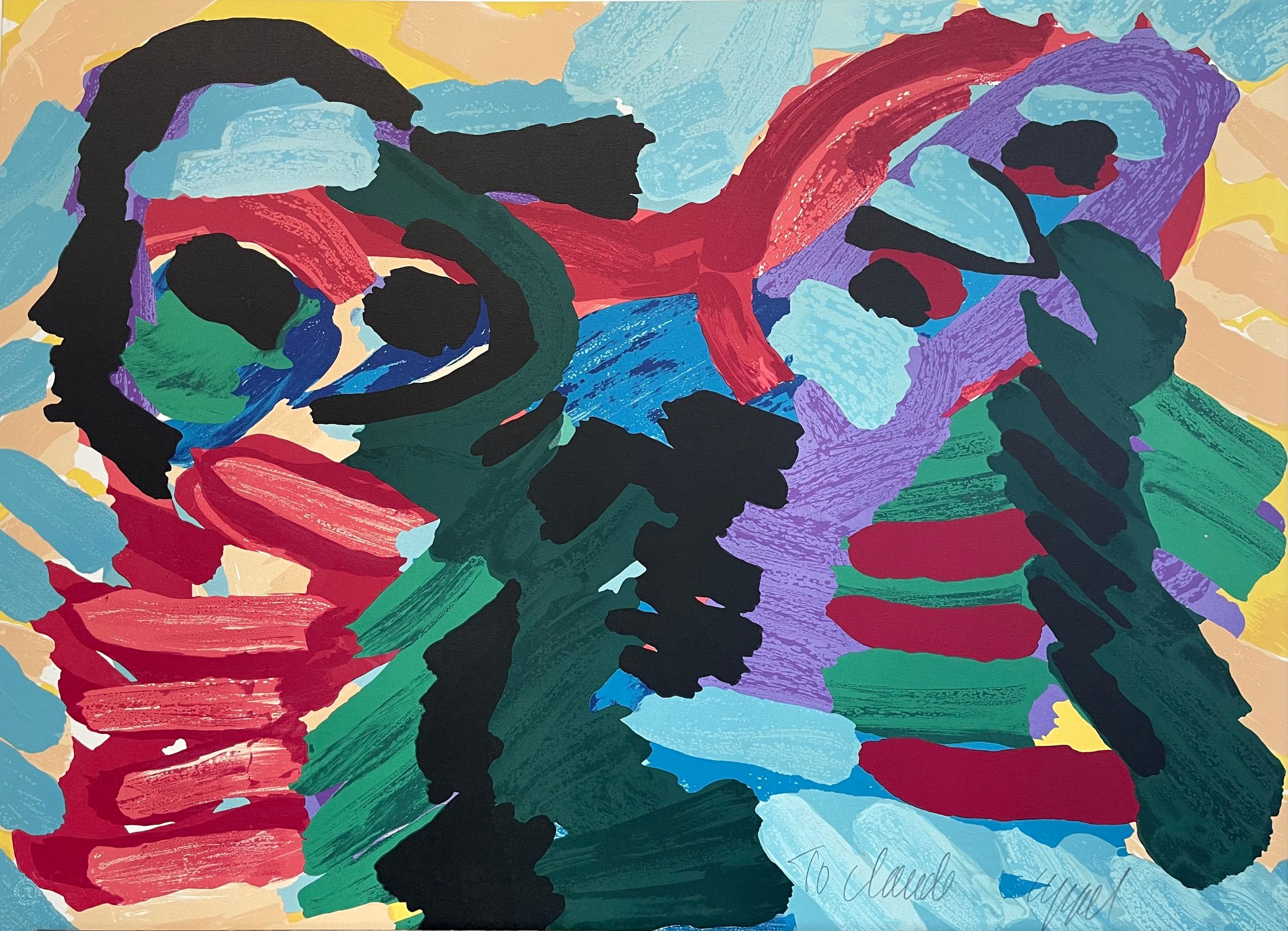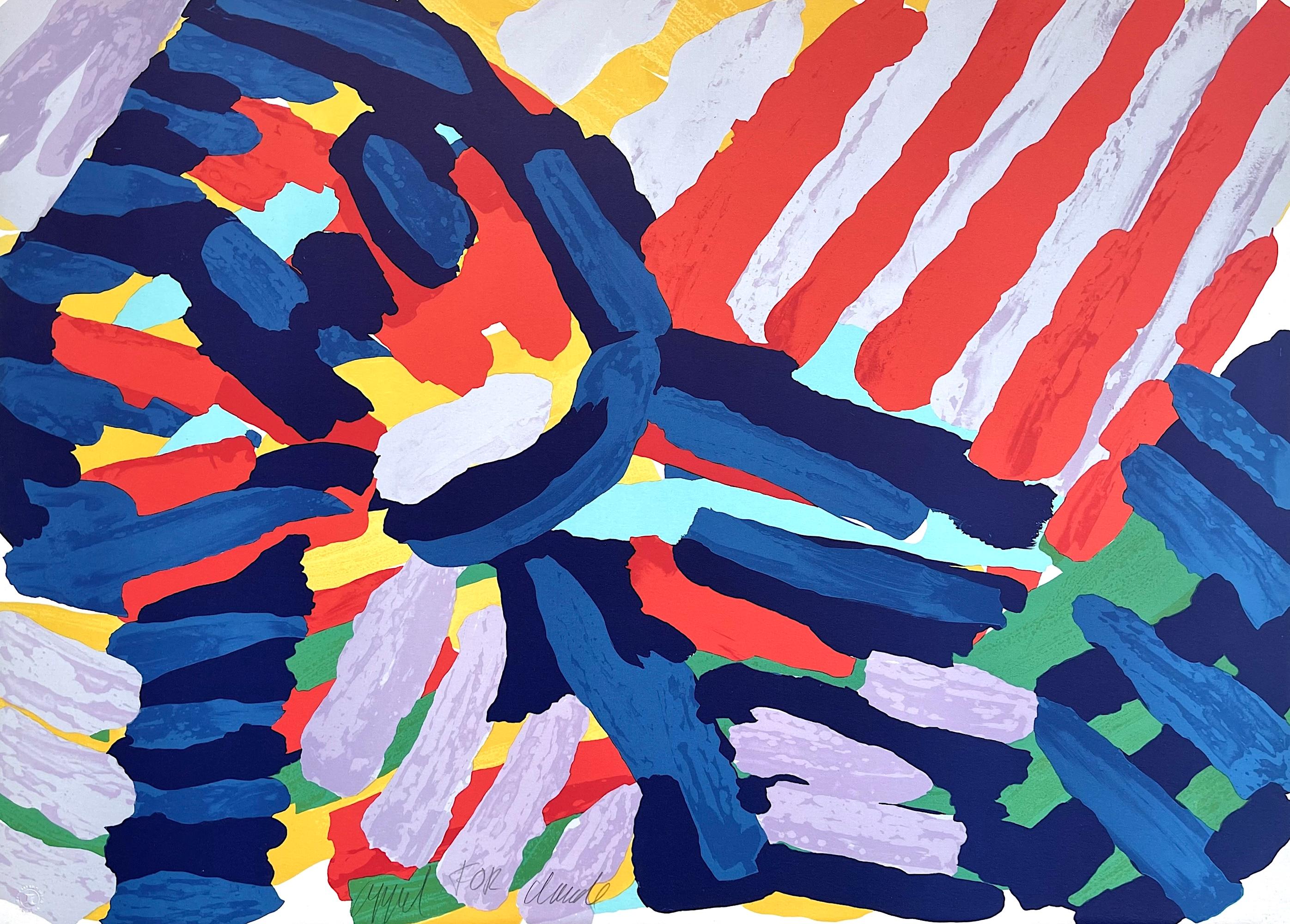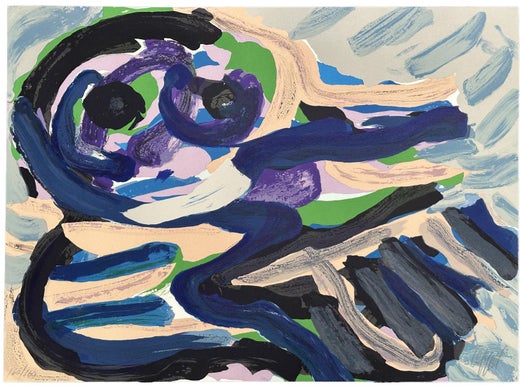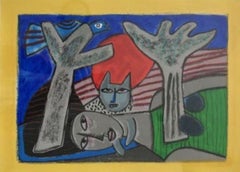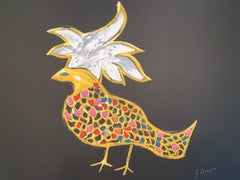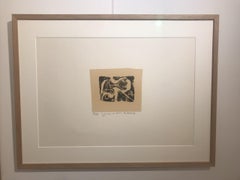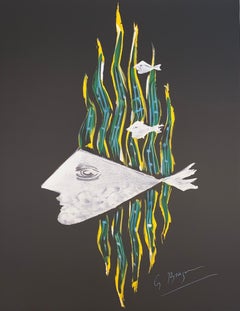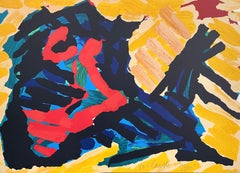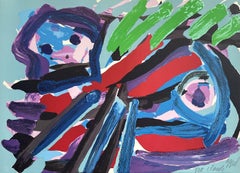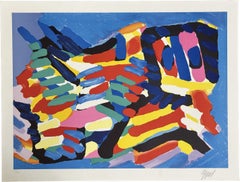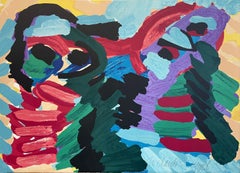Items Similar to See me running again - Lithograph -1978 - Handsigned - 172/175 - Modern abstract
Want more images or videos?
Request additional images or videos from the seller
1 of 10
Karel AppelSee me running again - Lithograph -1978 - Handsigned - 172/175 - Modern abstract1978
1978
$1,956.40
£1,486.85
€1,650
CA$2,745.13
A$2,995.55
CHF 1,554.87
MX$35,839.16
NOK 19,736.20
SEK 18,486.64
DKK 12,571.46
About the Item
Karel Appel. Title: See me running again by Appel Series.
Technology: Lithograph.
Published by Atelier Dumas of New York, U.S.A.
Paper size format: 76 x 56 cm. Year: 1978.
Framed.
Hand-signed and numbered: Karel Appel. 172/175
Karel APPEL (Amsterdam 1921 - Zurich 2006)
Sculptor, Painter, Graphic Artist
Education: Karel Appel studied at the Rijksacademie in Amsterdam. Lives and works in Amsterdam
Karel Appel started his career as an artist, as the son of a hairdresser, in Amsterdam, where he followed his education at the Rijksacademie in Amsterdam during the war years, very against the will of his father.
During his years at the academy, Karel Appel became friends with Corneille and Constant. A friendship that would last a very long time and was decisive for its further development. In the beginning Appel worked expressionistically and was strongly influenced by people like Picasso and Matisse, a few years after the war he founded the experimental group with Corneille, Wolvecamp and Constant, among others, and his work is becoming increasingly autonomous.
In 1948, the members of the experimental group joined forces with artists from Denmark and Belgium and founded the - now well-known - CoBrA group. CoBrA stands for Copenhagen, Brussels and Amsterdam. The CoBrA group has been very decisive in Dutch post-war art and enjoys great international recognition.
The real international breakthrough for Karel Appel comes when he himself works across the border, in New York and later in France. He receives his first Solo exhibition at the Stedelijk Museum in Amsterdam in 1968 and many exhibitions abroad follow.
Karel Appel can be counted as one of the most important artists in the Netherlands in modern art history.
- Creator:Karel Appel (1921 - 2006, Dutch)
- Creation Year:1978
- Dimensions:Height: 30.71 in (78 cm)Width: 38.19 in (97 cm)
- Medium:
- Movement & Style:
- Period:
- Condition:
- Gallery Location:Sint-Truiden, BE
- Reference Number:1stDibs: LU114814185081
Karel Appel
Karel Appel was a founding member of COBRA, an art movement originating in Germany that strived to replicate and invoke the child’s approach to art. Within this movement he created abstracted and simplified figures, often monsters and fractured depictions of people.
About the Seller
5.0
Vetted Professional Seller
Every seller passes strict standards for authenticity and reliability
Established in 2019
1stDibs seller since 2019
135 sales on 1stDibs
- ShippingRetrieving quote...Shipping from: Sint-Truiden, Belgium
- Return Policy
More From This Seller
View AllVrouw met kat en vogel - Cobra, 20th Century, Lithograph, Figurative Print, HC
By Guillaume Cornelis van Beverloo (Corneille)
Located in Sint-Truiden, BE
Guillaume Corneille
Lithograph
40 x 50 cm
Hors Commerce
HC
Gesigneerd
Corneille was one of the founders and one of the most important representatives of the Cobra movement. He was a ...
Category
Late 20th Century Post-War Figurative Prints
Materials
Lithograph
Phoenix - after Georges Braque - Lithograph - 1988 - Figurative Print
By (after) Georges Braque
Located in Sint-Truiden, BE
Color lithograph after a gouache by Georges Braque from the edition of 398 published by Armand & Georges Israel in 1988. Printed signature.
Artwork entirely made in France: from th...
Category
1980s Cubist Figurative Prints
Materials
Lithograph
Le Complexe Du Sphinx - Litho - Pierre Alechinsky - 1950 - edition 89/99
Located in Sint-Truiden, BE
Lithographie by Pierre Alechinsky. The piece is called "Le complexe du Sphinx" from 1950. It is hand signed in pencil and numbered 89/99.
Dimensions of the paper : 45x63 cm
Dimensio...
Category
1950s Post-War Figurative Prints
Materials
Handmade Paper
Hébé - after Georges Braque - Lithograph - 1988 - Figurative Print
By (after) Georges Braque
Located in Sint-Truiden, BE
Color lithograph after a gouache by Georges Braque from the edition of 398 published by Armand & Georges Israel in 1988. Printed signature.
Artwork en...
Category
1980s Modern Figurative Prints
Materials
Lithograph
Phaeton - after Georges Braque - Lithograph - 1988 - Figurative Print
By (after) Georges Braque
Located in Sint-Truiden, BE
Color lithograph after a gouache by Georges Braque from the edition of 398 published by Armand & Georges Israel in 1988. Printed signature.
Artwork en...
Category
1980s Cubist Figurative Prints
Materials
Lithograph
Haut Parleur - Litho - Pierre Alechinksy - 1950 - numbered - edition 89/99
Located in Sint-Truiden, BE
Lithographie by Pierre Alechinsky. The piece is called "Haut Parleur" from 1950. It is hand signed in pencil and numbered 89/99.
Dimensions of the paper ...
Category
1950s Post-War Figurative Prints
Materials
Handmade Paper
You May Also Like
RUNNING HORSE Signed Lithograph, Abstract Animal, CoBrA Artist
By Karel Appel
Located in Union City, NJ
RUNNING HORSE is an original hand drawn, limited edition lithograph by the Dutch artist Karel Appel printed using hand lithography techniques on Arches paper, 100% acid free.
RUNNING...
Category
1970s Abstract Abstract Prints
Materials
Lithograph
$1,680 Sale Price
21% Off
WALKING WITH MY BIRD Signed Lithograph, Figurative Abstract, CoBrA Artist
By Karel Appel
Located in Union City, NJ
WALKING WITH MY BIRD is an original limited edition lithograph by the Dutch artist Karel Appel printed using hand lithography techniques on Arches paper, 100% acid free. WALKING WITH...
Category
1970s Abstract Abstract Prints
Materials
Lithograph
$1,196 Sale Price
20% Off
Karel Appel Moving in Blue Signed Limited Edition Lithograph
By Karel Appel
Located in Rochester Hills, MI
Karel Appel
Moving in Blue
From the Ten by Appel Portfolio
Year 1979
Print - Lithograph 22.0'' x 30'' inches
Edition: signed in pencil and marked 11/175
Karel Appel is one of the fo...
Category
1970s Abstract Expressionist Abstract Prints
Materials
Lithograph
WITH MY BIRD Signed Lithograph, Figurative Abstract, Dutch Expressionist artist
By Karel Appel
Located in Union City, NJ
WITH MY BIRD is a rarely seen original limited edition lithograph by the Dutch artist Karel Appel printed using hand lithography techniques on archival printmaking paper, 100% acid f...
Category
1970s Abstract Abstract Prints
Materials
Lithograph
WALKING IN COLORS Signed Lithograph, Abstract Figure, Blue, Black, Red, Lavender
By Karel Appel
Located in Union City, NJ
WALKING IN COLORS is an original limited edition lithograph by the Dutch artist Karel Appel printed using hand lithography techniques on archival printmaking paper, 100% acid free. W...
Category
1970s Abstract Abstract Prints
Materials
Lithograph
FANTASTIC ANIMAL Signed Lithograph, Abstract Animal, Turquoise Red Purple Beige
By Karel Appel
Located in Union City, NJ
FANTASTIC ANIMAL is an original limited edition lithograph by the Dutch artist Karel Appel on printed using traditional hand lithography techniques on archival printmaking paper, 100...
Category
1970s Abstract Abstract Prints
Materials
Lithograph
$1,344 Sale Price
23% Off
